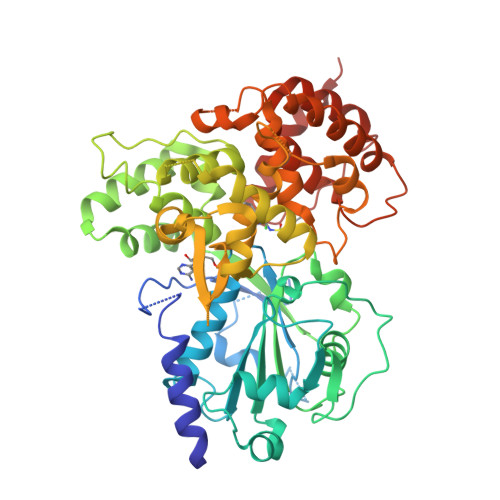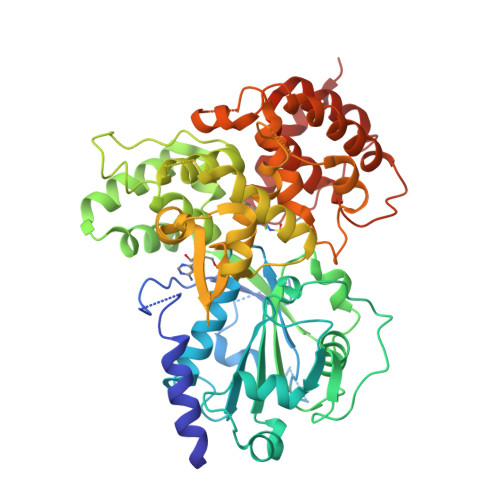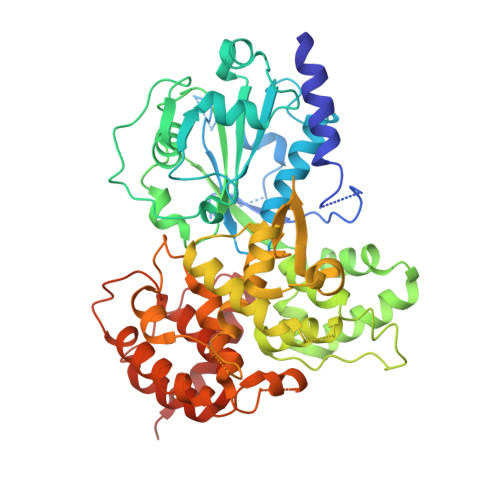Deep-Learning-Driven Discovery of SN3-1, a Potent NLRP3 Inhibitor with Therapeutic Potential for Inflammatory Diseases.
Shi, C., Gao, T., Lyu, W., Qiang, B., Chen, Y., Chen, Q., Zhang, L., Liu, Z.(2024) J Med Chem 67: 17833-17854
- PubMed: 39302813
- DOI: https://doi.org/10.1021/acs.jmedchem.4c01857
- Primary Citation of Related Structures:
8ZEM - PubMed Abstract:
The NLRP3 inflammasome plays a central role in the pathogenesis of various intractable human diseases, making it an urgent target for therapeutic intervention. Here, we report the development of SN3-1, a novel orally potent NLRP3 inhibitor, designed through a lead compound strategy centered on deep-learning-based molecular generative models. Our strategy enables rapid fragment enumeration and takes into account the synthetic accessibility of the compounds, thereby significantly enhancing the optimization of lead compounds and facilitating the discovery of potent inhibitors. X-ray crystallography provided insights into the SN3-1 inhibitory mechanism. SN3-1 has shown a favorable safety profile in both acute and chronic toxicity assessments and exhibits robust pharmacokinetic properties. Furthermore, SN3-1 demonstrated significant therapeutic efficacy in various disease models characterized by NLRP3 activation. This study introduces a potent candidate for developing NLRP3 inhibitors and significantly expands the repertoire of tools available for the discovery of novel inhibitors.
Organizational Affiliation:
State Key Laboratory of Natural and Biomimetic Drugs, School of Pharmaceutical Sciences, Peking University, Beijing 100191, China.




















